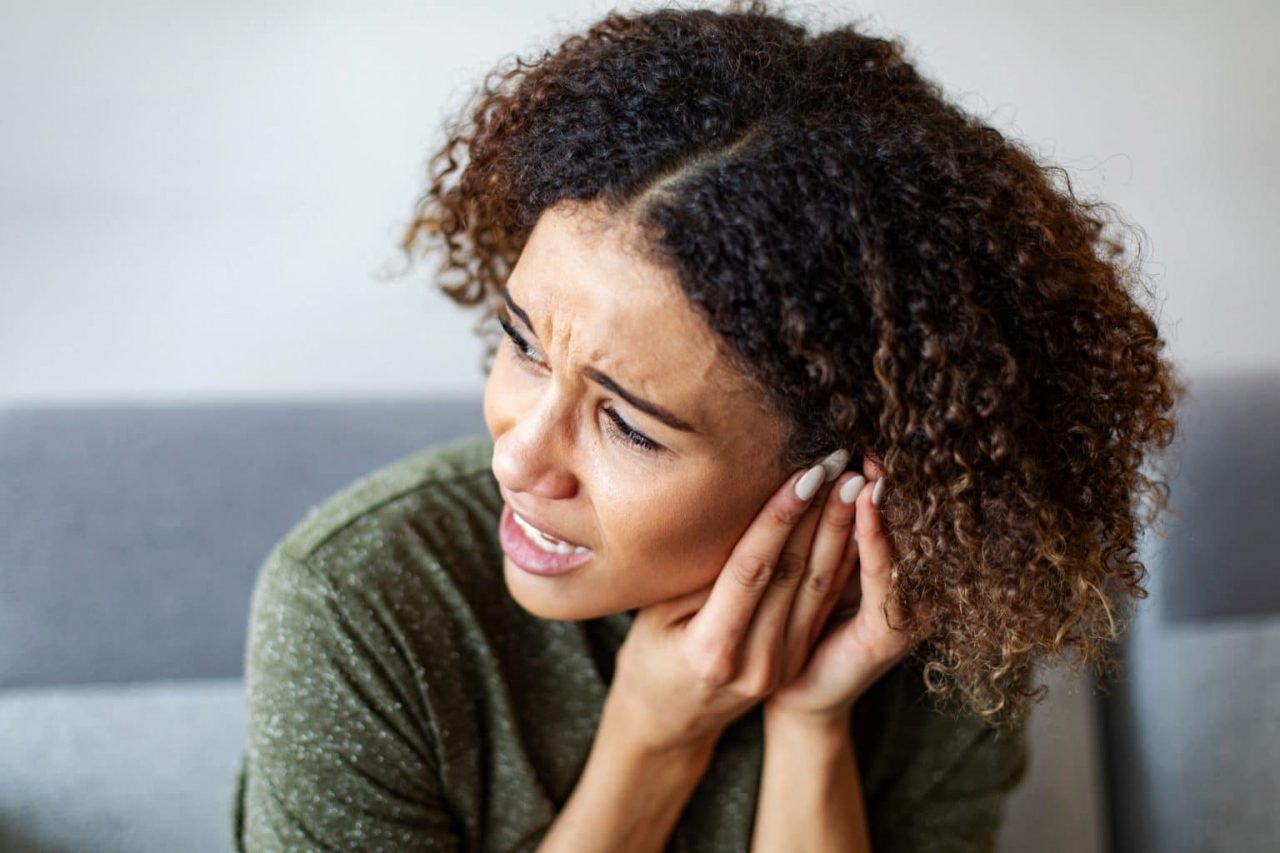The eardrum, also known as the tympanic membrane, is the thin tissue that divides the outer and middle ear. Its job is to vibrate in response to soundwaves hitting it. The vibrations are then sent to the tiny bones in the middle ear and then to the cochlea in order to allow us to hear.
Sometimes, the eardrum can be punctured, torn or ruptured. When this happens, it can affect your hearing. We review everything you need to know about a ruptured eardrum below.
What Are the Symptoms of a Ruptured Eardrum?

The symptoms of an eardrum rupture include:
- Ear pain
- Drainage from the ear
- Hearing loss
- Tinnitus (ringing in the ears)
- Vertigo (dizziness/spinning sensation)
- Nausea or vomiting
What Can Cause a Ruptured Eardrum?
There are many possible causes of a ruptured eardrum, including:
- Ear infection. Ear infections are the result of inflammation blocking the Eustachian tubes, which connect the middle ear to the back of the throat and allow fluid to drain and air pressure to equalize. When they become blocked, fluid becomes trapped. If not treated promptly, the trapped fluid can create pressure that bursts the eardrum.
- Pressure changes. Rapid changes in air pressure can also cause the eardrum to rupture. This is known as barotrauma. Possible causes of barotrauma include takeoff or landing from Greenville-Spartanburg International Airport, scuba diving, driving at high altitudes and direct impact to the ear.
- Loud sounds. In rare cases, exposure to extremely loud noises, like shotgun blasts, can actually cause the eardrum to tear.
- Foreign objects. Foreign objects in the ear that cause a puncture are most common in small children, but can also happen when adults improperly clean their ears with cotton swabs, hair pins and other pointy objects.
- Head trauma. Trauma to the head can also impact the eardrum.
How Is a Perforated Eardrum Treated?
An ear expert at Spartanburg | Greer ENT & Allergy can diagnose a perforated eardrum with a physical exam using an otoscope. Afterward, they can recommend an appropriate treatment depending on the severity, which may include:
- Home remedies. For minor tears, they may recommend a wait-and-see approach, during which you can take over-the-counter pain relievers and apply warm, dry compresses.
- Antibiotics. These drugs can prevent an infection as well as treat a current infection.
- Patching. Some tears require patches to help them heal.
- Surgery. In rare cases, surgery called tympanoplasty may be required to repair the eardrum.
For more information or to schedule an appointment, call Spartanburg | Greer ENT & Allergy today.
